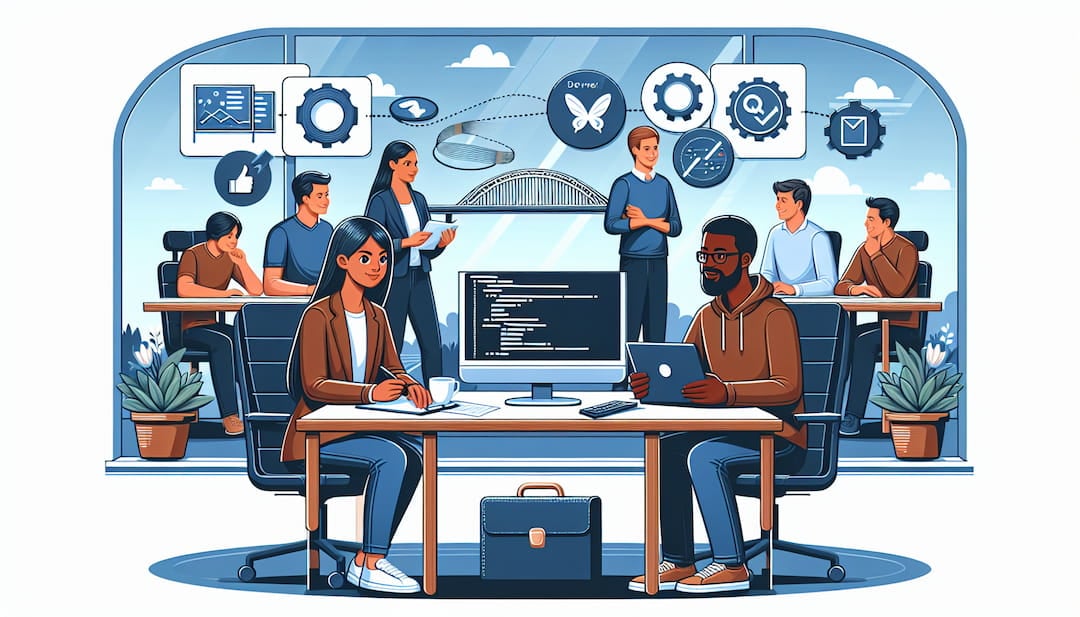Building Bridges: Effective QA Engineer & Developer Partnerships

Understanding the Importance of Synergy
Building a successful software product is a complex process that requires the talents and skills of both Quality Assurance (QA) Engineers and software developers. Often, these teams work separately on the components of the overall project, but the most successful teams understand the vital importance of synergy between QA Engineers and developers. The foundation of this relationship is built on recognizing that both parties have a shared goal: producing a high-quality, functional application.
Establishing Open Communication Channels
Clear and open communication is the cornerstone of any strong partnership. Developers and QA Engineers need to have regular interactions where they can discuss ongoing development, raise concerns, and exchange feedback. Communication can take the form of daily standups, collaborative tools, chat systems, and regular meetings. By ensuring that there is no barrier to communication, both sides can work more effectively to address issues as they arise.
Promoting a Culture of Mutual Respect
Every strong relationship is built on respect. When developers and QA Engineers respect each other's expertise and the value each brings to the project, collaboration is greatly enhanced. Developers must appreciate the critical eye that QA brings, helping to improve the product's robustness. Conversely, QA Engineers must respect the challenges faced by developers and their dedication to creating high-quality code. Establishing mutual respect removes unnecessary tension and leads to a more productive work environment.
Collaborative Problem-Solving
When issues arise, as they inevitably will, viewing them as shared challenges rather than pointing fingers can foster a positive partnership. Collaborative problem-solving encourages both developers and QA Engineers to bring their unique perspectives to the table to brainstorm solutions. This teamwork does not just merely remove roadblocks; it also leads to innovative strategies and an improved product.
Incorporating Feedback Loops
Feedback is a powerful tool for continuous improvement. When developers are open to receiving feedback from QA, they can adjust and fine-tune their code effectively. This feedback loop should go both ways—developers should also feel comfortable providing insights into how QA can align their testing with the development process. Automated testing, code reviews, and effective bug-tracking systems can facilitate these feedback loops.
Education and Knowledge-Sharing
Both QA Engineers and developers have distinct skill sets that can be further leveraged through education and knowledge-sharing. Providing opportunities for QA Engineers to learn more about development processes, and for developers to understand quality assurance principles, can improve collaboration. This could be achieved through cross-training sessions, workshops, or even pair programming/testing initiatives.
Celebrating Successes Together
It's essential to recognize that both QA and development teams contribute to the victories of the software's life cycle. Celebrating milestones and releases together can foster a sense of community and achievement. Whether it's a successful sprint, a well-received product feature, or hitting deadlines, acknowledging the effort of all team members solidifies a positive partnership.
Conclusion: Moving Forward as a Unified Force
The partnership between QA Engineers and developers is not just beneficial; it's essential for the success of any software project. By fostering a relationship rooted in communication, respect, collaboration, and shared success, these teams can elevate the quality and effectiveness of their work. Building bridges between QA and development is an ongoing process that requires commitment and effort, but the results are well worth the investment. As the software industry continues to evolve, the most successful products will be those created by teams that operate not as separate entities, but as a unified force.




